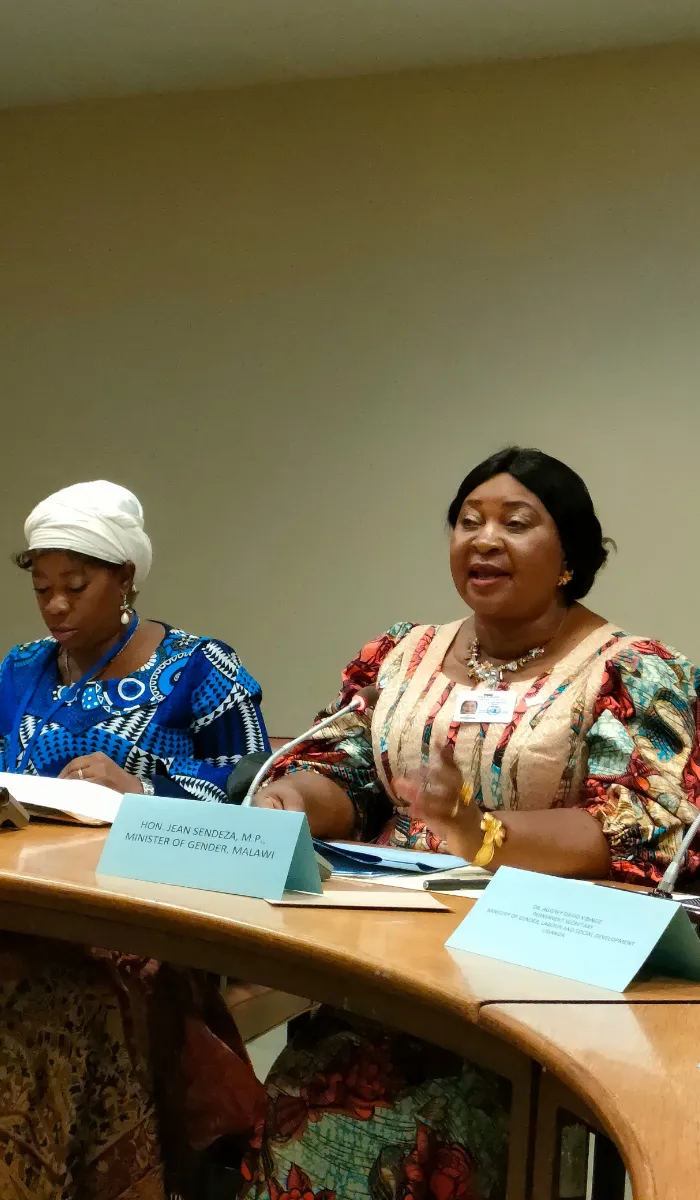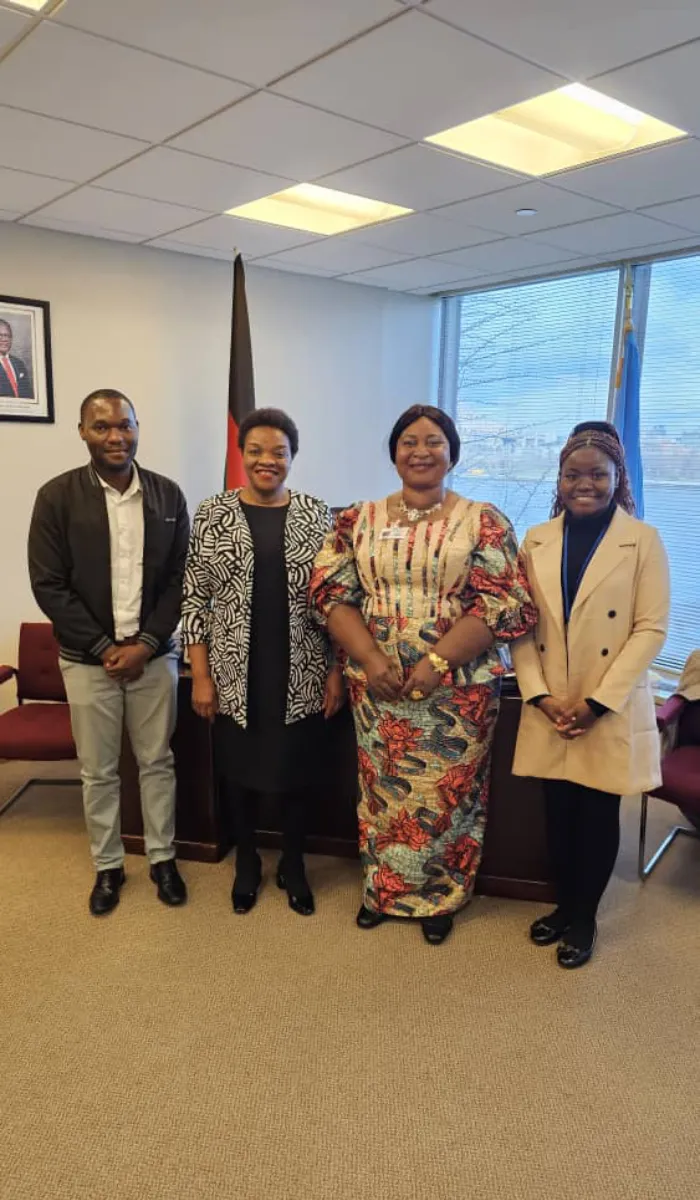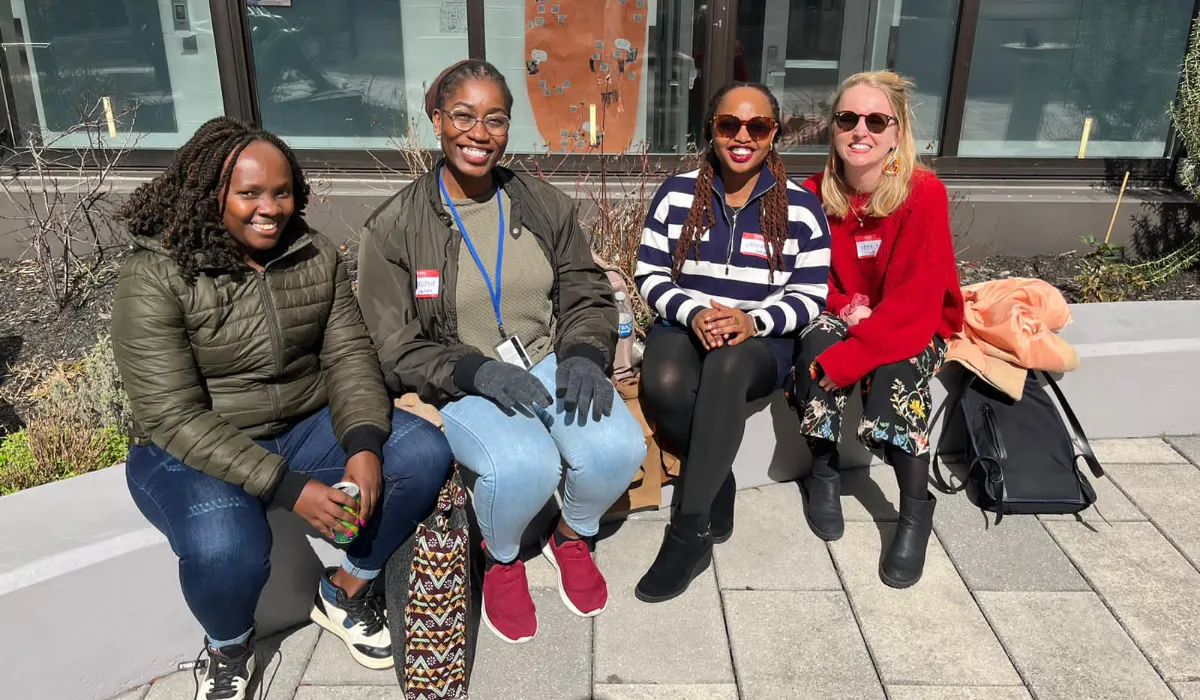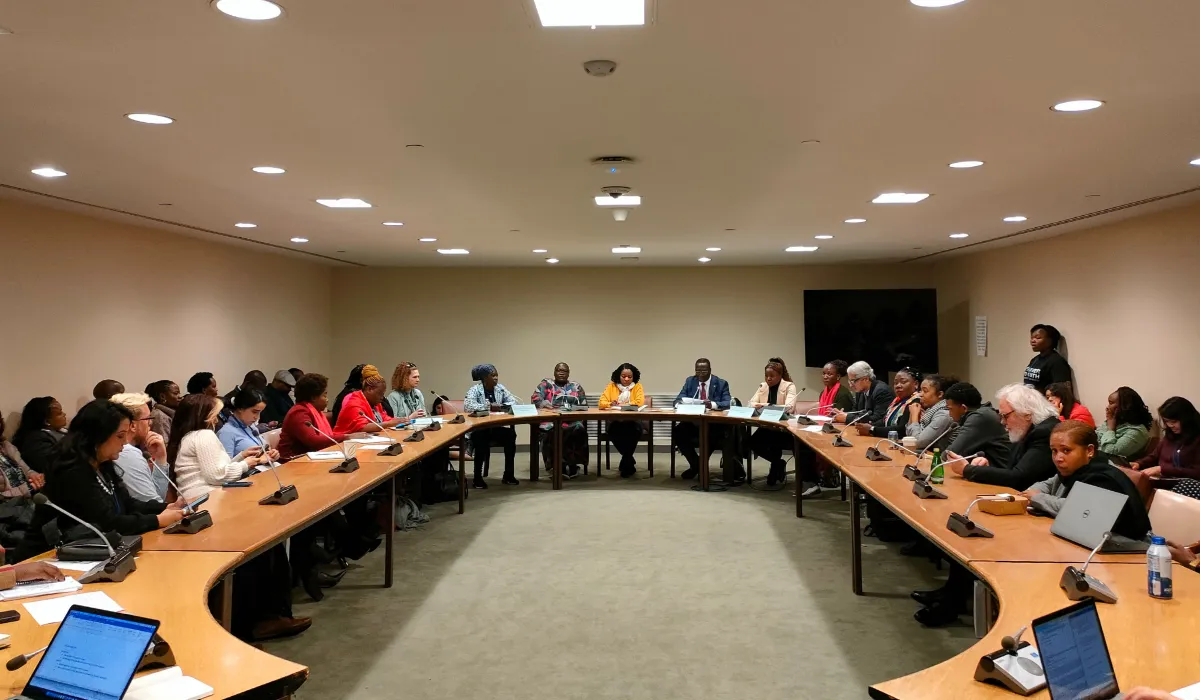This year’s Commission on the Status of Women 68 featured Sonke Gender Justice and Power to Youth partners’ participation, through side events, at the UN headquarters in New York From the 11th – 22nd March 2024. The participation was aimed at sharing good practices of community interventions, creating linkages, learning and partnership opportunities at the global level and showcasing gender transformative approaches as a tool for promoting gender justice in communities.
Some of the niche areas were media as an advocacy tool for gender transformation in communities. Meaningful engagement of local leaders in promoting gender-inclusive initiatives like girls’ education and access to Sexual and Reproductive Health Rights and human rights services. Opportunities for youth-led and youth-focused feminist funding and success stories of working to end harmful practices against girls.
The most intriguing were the good practices shared by Power to Youth partners who are accelerating change in communities. Speaking at CSW68, Martha Kavuma, Power to Youth Program specialist at Sonke Gender Justice had this to say ‘In our work, the paramount consideration is to ensure that our interventions directly address the most critical needs within our communities. We meticulously assess and prioritise these needs, recognizing that our efforts must have a tangible and immediate impact on the lives of those we serve. By focusing on the most pressing challenges faced by community members, we aim to make a meaningful difference and effect positive change where it is needed most.’’


Co-creation and capacity strengthening within the Power to Youth program was also one of the good practices that was highlighted at the CSW68. “At the heart of our approach is a collaborative process where we engage directly with the community to identify and understand the specific gaps and challenges they face. Through open dialogue and active listening, we work hand in hand with community members to gain insights into their unique needs and circumstances. ‘’ said Dianah Nanyange, Power to Youth Uganda Programme Coordinator.
‘’This participatory approach ensures that we have a comprehensive understanding of the issues at hand, allowing us to develop solutions that are truly responsive to the community’s realities. Once we’ve identified the gaps and challenges, we embark on a journey of co-creation with the community. This means that community members are active partners in the design and implementation of solutions. Together, we leverage local knowledge, resources, and expertise to develop tailored interventions that address the root causes of the issues identified,’’ she adds.
Creating safe spaces for meaningful youth inclusion and participation was discussed as a paramount practice of ensuring that youths contribute to decisions that affect their lives and their communities positively.

‘In Power to Youth Malawi, we prioritise the voices of our youth by establishing safe spaces tailored to their needs within schools. These dedicated youth spaces serve as crucial platforms for engaging young people in shaping their communities and driving positive change. By providing a secure and inclusive environment, we empower youth to actively participate in decision-making processes and take ownership of initiatives aimed at fostering community development. Through these avenues, we ensure that the perspectives and contributions of Malawi’s youth are valued and integrated into our efforts,’’ said Chimwemwe Kayenge, Program Assistant at the Centre for Human Rights and Rehabilitation in Malawi
Focusing on the prioritisation of girls’ education using the Model Gendered Family and Household Framework in orchestrating more equitable communities. Hafsatu Sey Sumani, Head of Programs, Policy, and Campaigns – Norsaac in Ghana shared these insights,
‘In Ghana, our focus on adolescent girls’ education goes beyond conventional approaches. Collaborating with traditional chiefs, we ensure that girls have access to education while prioritising their empowerment. By building the capacity of these leaders, we harness their influence to advocate for gender equality and champion girls’ rights within their communities. Additionally, through the Model Gendered Family Household (MGF) framework, we’re promoting healthy gender norms. Model families serve as examples, illustrating the positive impact of gender equality within households. By showcasing these exemplary families, we catalyse a cultural shift towards more equitable communities, empowering every girl to thrive’’.
Aside from the CSW68, Sonke Gender Justice and Power to Youth partners keep creating and participating in linkage and learning opportunities for sharing of experiences during community interventions and the good practices that are transforming communities, creating safe spaces for meaningful youth inclusion and participation as well as promoting the rights of women and girls.


